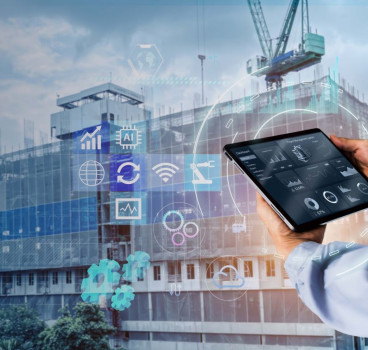Should we be revising our views about property developers?
The word developer once meant progress. It implied ambition, new homes and economic growth. But in 2025, it carries a different meaning. For many, it’s become a symbol of profit over place, of quick wins and concrete sprawl. And that’s a problem, because the people shaping our built environment today are doing far more than erecting buildings. They’re managing carbon, restoring habitats and balancing environmental compliance with social value, writes John Ridgeway.
Yet the language hasn’t kept up. “Developer” no longer fits the reality of modern construction or the expectations placed on those leading it. Today’s projects demand not just builders, but custodians, professionals responsible for how land is used, how water is managed and how communities live with the outcomes for generations. It’s time the term evolved to reflect that responsibility.
The future of development is no longer defined by how much land you transform, but by how responsibly you do it. The most forward-thinking developers now see themselves not simply as creators of new places, but as stewards of the environment they alter. Every decision, from drainage strategy to material choice, is part of a bigger accountability. In short, it’s about protecting the ecological systems that make those developments viable in the first place.
This change demands a new kind of fluency. Today’s developers must be as comfortable discussing biodiversity, carbon modelling and hydrology as they are margins, yields and delivery schedules. Environmental literacy has become a commercial skill. Projects now begin with environmental balance sheets alongside financial ones, weighing nutrient neutrality, biodiversity net gain and whole-life carbon against conventional measures of return. These are not buzzwords - they’re the new language of compliance, credibility and long-term value.
What’s emerging is a profound change in mindset. Development is moving from an extractive process to a regenerative one - from taking space to giving it back. Those who embrace this evolution are not only future-proofing their projects against regulation and reputational risk - they’re redefining what progress looks like. In the new economy of trust and transparency, stewardship is not a moral add-on. It’s the foundation of sustainable growth.
The rise of the “Regenerative Developer”
Across the UK and beyond, a quiet revolution is happening. Developers are partnering with environmental groups, architects and local authorities to deliver projects that give back more than they take. From urban greening initiatives and low-carbon housing to nutrient offsetting and natural flood management, a new generation of projects is showing that profit and purpose can coexist.
This movement demands a new vocabulary, one that speaks not just to buildings, but to systems. The regenerative developer isn’t simply creating places for people to live or work - they’re engineering circular economies, embedding renewable infrastructure and restoring ecosystems damaged by decades of intensive construction.
And crucially, they’re doing so in full public view. The most credible modern developers are those who understand that transparency builds more long-term value than any quick win ever could.
The traditional development model rewards speed, efficiency, and return on investment. But what if success were measured differently? What if the true value of a project was calculated not just in sales or yield, but in the biodiversity it supports, the carbon it avoids, and the wellbeing it nurtures?

That’s where the new wave of responsible developers is heading - reframing progress through metrics that matter to society as well as shareholders. They’re proving that better doesn’t have to mean bigger and that good design isn’t a luxury, but a duty.
Reinvention, then, isn’t about abandoning the word developer. It’s about restoring its meaning, aligning it with the realities and responsibilities of a world that can no longer afford to build blindly.
We can see therefore, that the word developer will always have a place in the industry lexicon, but its definition is ripe for renewal. As construction moves from an era of expansion to one of stewardship, those who see themselves as builders of ecosystems, not just estates, will lead the way.
The developer of the future is not simply someone who transforms land. They are a guardian of resources, a partner to the planet and a catalyst for sustainable change. And that’s not just good for reputation - it’s good for business, too.
Additional Blogs

Designing buildings for how people actually break them
Most buildings don’t fail in the neat, diagrammatic ways suggested by drawings and calculations. They don’t politely age according to specifications or wait for loads to be applied exactly as...
Read moreFrom timber to TimberLike: why the next generation of composite entrance doors is changing the trade
For years, timber has been the benchmark for a beautiful front door – rich grain, solid weight, and a classic look that suits everything from terraces to executive new-builds. But traditional timber...
Read more

Can buildings be too smart for their own good?
Over the past decade, the construction industry has embraced the idea of the “smart building” with almost evangelical enthusiasm. Sensors, automation, predictive systems and AI-driven controls are...
Read more